Understanding the Landscape of Diet and Neurodevelopment
The relationship between diet and neurodevelopmental conditions such as autism spectrum disorder (ASD) remains a complex and evolving area of scientific research. As concerns about dietary factors grow, questions arise about the role of common dietary ingredients—particularly seed oils—in influencing brain development and neurological health. This comprehensive exploration aims to dissect current evidence, clarify misconceptions, and assess potential links between seed oils and autism.
Overview of Seed Oils in Modern Diets
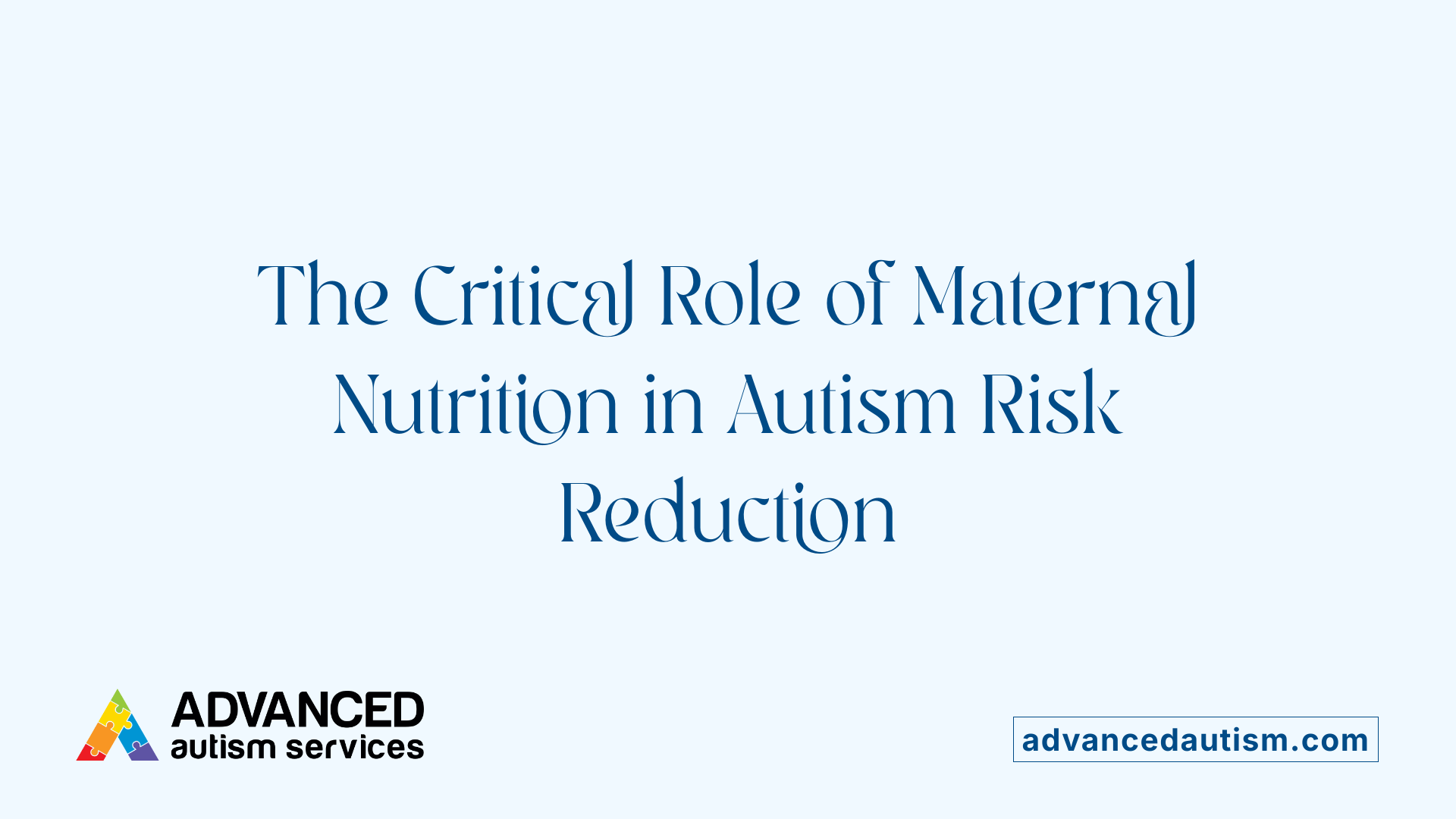 Recent research consistently indicates that maternal intake of certain nutrients during pregnancy can be associated with a reduced likelihood of autism spectrum disorder (ASD) in offspring. Specifically, higher or moderate consumption of prenatal or multivitamins, folic acid, and vitamin D has been linked with a lowered risk of ASD.
Recent research consistently indicates that maternal intake of certain nutrients during pregnancy can be associated with a reduced likelihood of autism spectrum disorder (ASD) in offspring. Specifically, higher or moderate consumption of prenatal or multivitamins, folic acid, and vitamin D has been linked with a lowered risk of ASD.
Multiple studies highlight the potential protective role of these nutrients. For example, adequate folic acid intake around the time of conception appears particularly crucial. Emerging evidence suggests that ensuring sufficient levels of these nutrients during pregnancy may influence the etiology of ASD, possibly by supporting optimal fetal brain development.
Folic acid, often recommended periconceptionally, plays a vital role in DNA synthesis and repair. Proper timing of intake, especially during the early stages of pregnancy, seems to be a determinant factor in its effectiveness at reducing ASD risk. Similarly, vitamin D, which helps regulate brain development and immune function, when taken in appropriate amounts during pregnancy, has been associated with a lower probability of ASD diagnosis in children.
Here’s a overview of some of the critical nutrients and their impact:
| Nutrient | Role in Pregnancy | Evidence on ASD Risk Reduction | Timing of Intake |
|---|---|---|---|
| Folic Acid | Supports DNA synthesis, neural tube development | Consistent association with decreased ASD odds | Periconceptional period, first trimester |
| Vitamin D | Regulates brain development, immune function | Emerging evidence suggests protective effect | Throughout pregnancy, especially early stages |
| Multivitamins | Provide a range of essential nutrients including folic acid | Associated with overall reduced neurodevelopmental risks | Usually start before conception, continue through pregnancy |
Efforts to optimize maternal nutrition, including adequate supplementation of folic acid and vitamin D, are a promising public health approach to potentially lower ASD prevalence. It’s important to consult healthcare providers to personalize prenatal care plans, balancing nutrient intake to support maternal health and fetal development.
Processed Foods and Autism: What's the Connection?
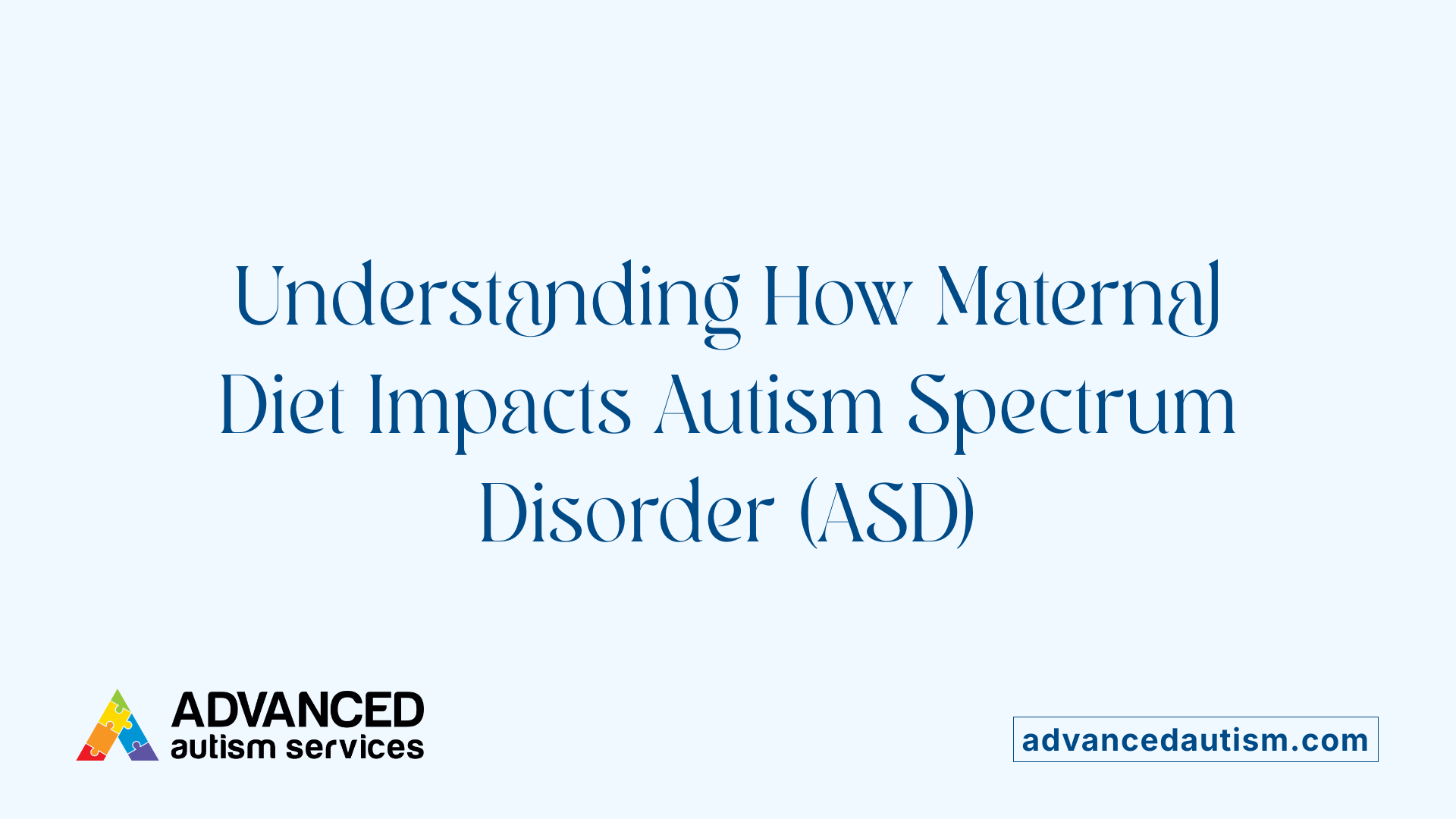
How does prenatal vitamin and nutrient intake influence the likelihood of ASD?
Research consistently shows that what a mother consumes during pregnancy can significantly impact her child's development, including the risk of autism spectrum disorder (ASD). Intake of multivitamins, particularly those containing folic acid and vitamin D, has been notably linked to a lower chance of ASD in offspring.
Pregnant women who take moderate or higher amounts of prenatal multivitamins tend to have children with a reduced prevalence of ASD. Specific attention to folic acid intake, especially around the time of conception, appears to be especially important. Folic acid plays a critical role during the early stages of fetal development, helping to support neural tube formation and potentially preventing neurodevelopmental issues.
Vitamin D is another vital nutrient associated with brain development. Sufficient vitamin D levels during pregnancy have been connected with a decreased risk of ASD, possibly due to its role in neuroimmune and neurodevelopmental pathways.
When is the critical window for nutrient intake?
The timing of maternal nutrient consumption seems to be as important as the nutrients themselves. Studies suggest that the periconceptional period — the time around conception — is especially critical for folic acid intake. Ensuring adequate folic acid levels during this window can influence the complex process of early brain development, which may determine ASD risk.
What does the evidence say?
Multiple scientific studies support a protective effect of prenatal nutrients against ASD. These include observational research indicating that higher intake of folic acid and vitamin D correlates with reduced ASD symptoms and diagnoses.
Emerging evidence points to a coordinated influence between maternal diet and fetal brain development. It suggests that improving nutritional status, particularly with folic acid and vitamin D, might be a practical approach to lowering ASD risk.
Nutritional Recommendations for Expectant Mothers
| Nutrient | Recommended Intake | Timing | Potential Impact |
|---|---|---|---|
| Folic Acid | 400-800 mcg daily | Periconceptional period | Supports neural tube development, lowers ASD risk |
| Vitamin D | 600-800 IU daily (varies by health guidelines) | During pregnancy | Enhances neurodevelopment, reduces ASD odds |
| Multivitamins | As recommended by healthcare providers | Throughout pregnancy | Overall support of fetal brain development |
Final thoughts on prenatal nutrients and ASD
Ensuring adequate intake of essential nutrients like folic acid and vitamin D during pregnancy, especially during the critical periconceptional period, can serve as a protective factor against ASD. While diet is just one aspect of fetal development, optimizing maternal nutrition holds promise as a preventive strategy.
Scientific Evidence Linking Seed Oils to Autism: What Do Studies Show?
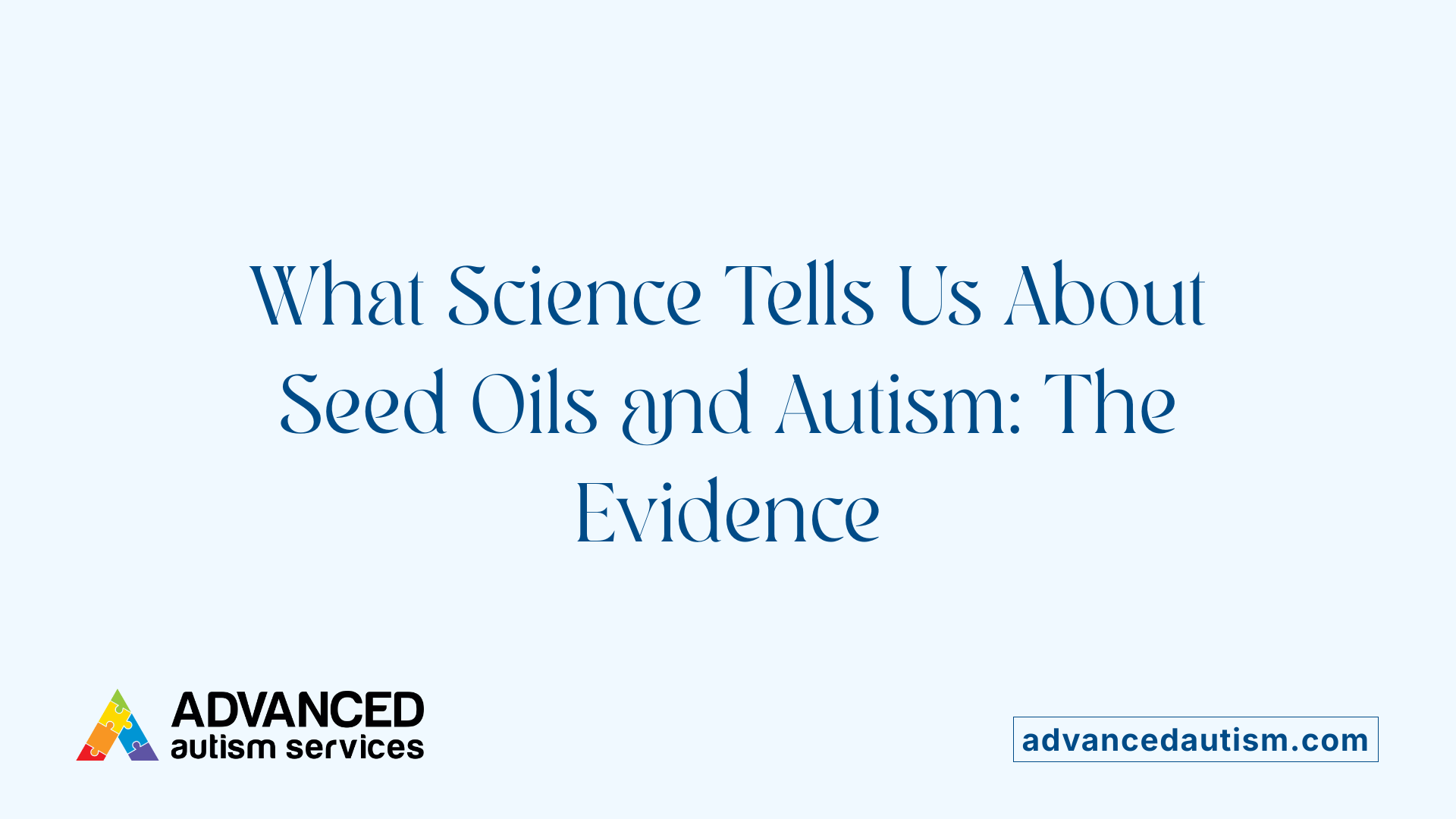 Scientific investigations consistently highlight the importance of maternal diet during pregnancy in influencing the likelihood of autism spectrum disorder (ASD) in offspring. Among various nutrients, prenatal vitamins, folic acid, and vitamin D have been extensively studied for their potential protective effects.
Scientific investigations consistently highlight the importance of maternal diet during pregnancy in influencing the likelihood of autism spectrum disorder (ASD) in offspring. Among various nutrients, prenatal vitamins, folic acid, and vitamin D have been extensively studied for their potential protective effects.
Research shows that higher or moderate intake of these nutrients correlates with decreased odds of ASD. Multiple studies reveal that women who consume adequate levels of prenatal supplements during pregnancy tend to have children with a lower risk of developing autism. The timing of nutrient intake is also crucial; for example, folic acid taken around the periconceptional period—just before and during early pregnancy—appears particularly beneficial.
Folic acid, a B vitamin, is essential for neural development. Its supplementation prior to conception and during early pregnancy has been associated with a reduced risk of ASD. Similarly, vitamin D, vital for brain health and immune regulation, has been linked with better neurodevelopmental outcomes when consumed in sufficient amounts during pregnancy.
Below are the findings summarized in a table:
| Nutrient | Timing of Intake | Impact on ASD Risk | Additional Notes |
|---|---|---|---|
| Folic Acid | Periconceptional period | Decreased likelihood of ASD | Essential for neural tube development |
| Vitamin D | Throughout pregnancy | Associated with reduced ASD risk | Supports brain and immune health |
| Prenatal Multivitamins | Throughout pregnancy | Linked with lower ASD odds | Contains both folic acid and vitamin D |
The emerging evidence underscores the potential for maternal nutrition to influence neurodevelopmental trajectories. It highlights the importance of prenatal care that emphasizes adequate intake of critical vitamins. As research progresses, understanding the precise mechanisms by which these nutrients affect fetal brain development will be vital.
In conclusion, maintaining sufficient levels of folic acid and vitamin D during pregnancy can be protective strategies against ASD. Healthcare providers often recommend supplementation, especially during the critical early stages of pregnancy, to optimize fetal development and possibly reduce the risk of neurodevelopmental disorders like autism.
Biochemical Perspective: How Seed Oils Influence Brain Chemistry
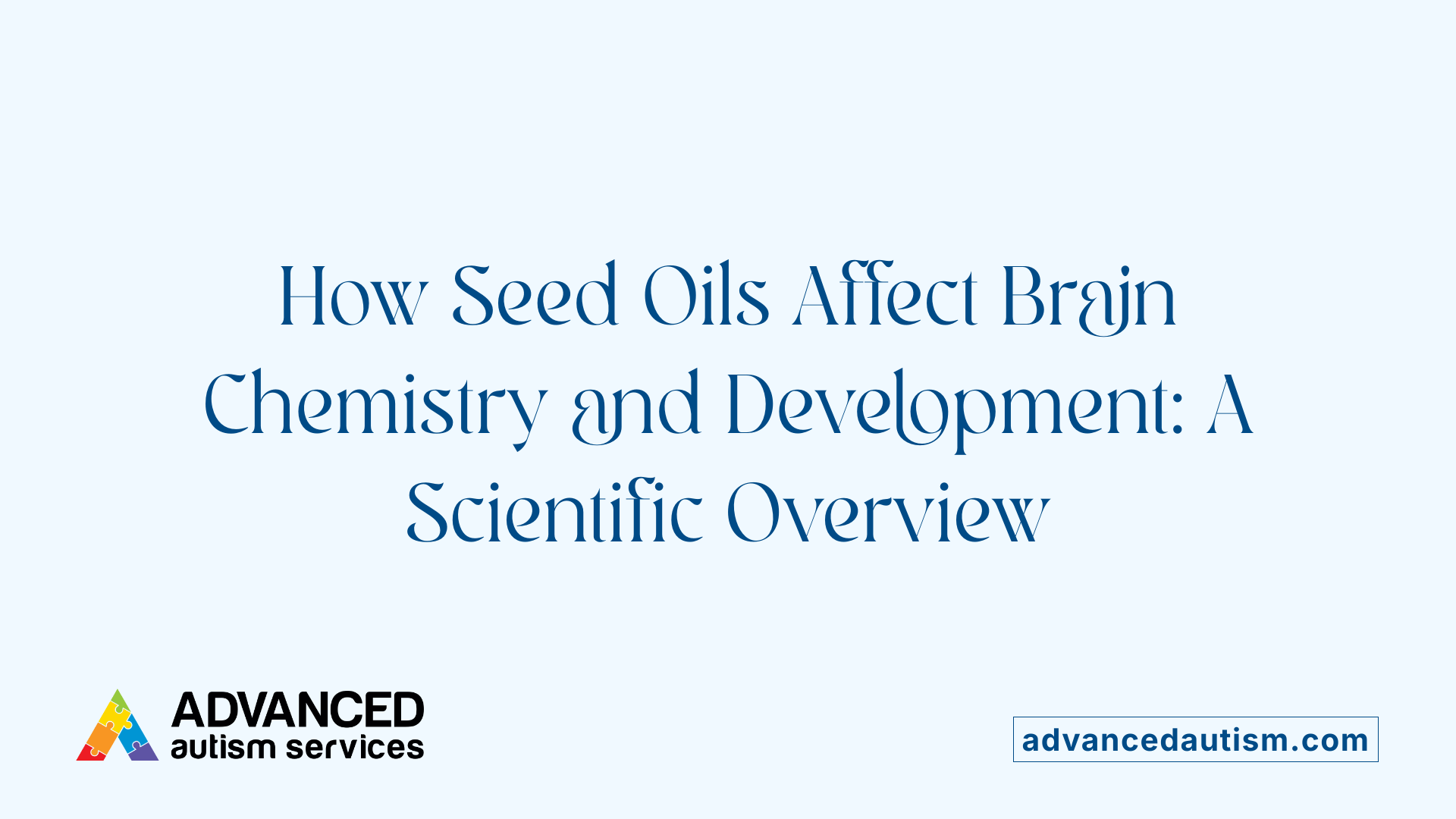
How does maternal intake of prenatal vitamins, folic acid, and vitamin D influence the risk of autism spectrum disorder (ASD)?
Numerous studies have established a connection between higher or moderate intake of prenatal multivitamins, folic acid, and vitamin D during pregnancy and a decreased likelihood of ASD in children. These nutrients appear to play a vital role in fetal brain development, and their sufficient levels may offer protective benefits.
Research consistently supports that when pregnant women consume these nutrients, especially during critical windows such as the periconceptional period, the risk of ASD in offspring diminishes. This period is particularly important for nutrient intake because foundational brain structures develop early in pregnancy.
Does current evidence suggest that specific nutrients protect against ASD?
Yes, the evidence indicates that adequate levels of folic acid and vitamin D are associated with neurodevelopmental benefits. Folic acid, crucial for DNA synthesis and cell growth, has been linked to lower ASD rates when taken around conception and during early pregnancy. Similarly, vitamin D, essential for brain health and immune regulation, shows promising associations with reduced ASD risk when levels are maintained within optimal ranges.
How important is the timing of nutrient intake?
Timing appears to be a critical factor. The period surrounding conception, known as the periconceptional window, is especially sensitive to the effects of folic acid. Nutrient intake during this window may influence early brain development and reduce the predisposition for neurodevelopmental disorders, including ASD.
| Nutrient | Critical Period | Effect on ASD Risk | Additional Notes |
|---|---|---|---|
| Folic Acid | Periconceptional to early pregnancy | Reduced risk of ASD | Essential for neural tube development |
| Vitamin D | Throughout pregnancy | Potentially lowers ASD risk when adequate levels are maintained | Important for immune system and brain health |
| Multivitamins | Throughout pregnancy | Associated with lower ASD odds when used consistently | Ensures a combination of neuroprotective nutrients |
Final thoughts
Overall, maintaining appropriate levels of key nutrients before and during pregnancy can influence neurodevelopmental outcomes. While further research continues, current findings support the importance of prenatal nutrition as a strategic measure to potentially lower ASD risk.
Debunking Myths: Misconceptions About Seed Oils and Autism
 During pregnancy, nutrition plays a vital role in the development of the child's brain and overall health. Emerging research indicates that taking certain vitamins and nutrients, particularly prenatal vitamins, folic acid, and vitamin D, can be associated with a reduced chance of autism spectrum disorder (ASD) in offspring.
During pregnancy, nutrition plays a vital role in the development of the child's brain and overall health. Emerging research indicates that taking certain vitamins and nutrients, particularly prenatal vitamins, folic acid, and vitamin D, can be associated with a reduced chance of autism spectrum disorder (ASD) in offspring.
Many studies have demonstrated that mothers who consume moderate to high levels of these nutrients are less likely to have children diagnosed with ASD. For example, prenatal multivitamins that include folic acid and vitamin D have shown promising links to lowering ASD odds.
Folic acid, which is often recommended before conception and during early pregnancy, appears especially important. The timing of intake is crucial — evidence suggests that the periconceptional period, the months around conception, might be the most sensitive window for reducing ASD risk.
Vitamin D is another nutrient gaining attention. Adequate levels during pregnancy have been linked to healthier neurodevelopment outcomes. Since vitamin D influences brain development and immune system regulation, maintaining sufficient levels may help protect against neurodevelopmental disorders.
This relationship between maternal diet and ASD highlights the importance of proper nutrition during pregnancy. Ensuring enough intake of folic acid, vitamin D, and overall multivitamins is a potentially effective strategy for reducing ASD risk.
The evidence continues to grow, emphasizing that maternal nutrition is a modifiable factor in offspring health. As research advances, pregnant women are encouraged to follow medical guidance to include these nutrients in their diet for healthier fetal brain development.
Below is a summary table of nutrients linked with lower ASD risk:
| Nutrient | Sources | Timing of Intake | Potential Benefits |
|---|---|---|---|
| Folic Acid | Leafy greens, fortified cereals, supplements | Periconceptional period, early pregnancy | Reduces neural tube defects, lowers ASD risk |
| Vitamin D | Sunlight exposure, fatty fish, fortified foods, supplements | Throughout pregnancy, especially early | Supports brain development, immune regulation |
| Multivitamins | Prenatal vitamin formulations | Before conception and during pregnancy | Comprehensive support for fetal development |
Understanding these relationships can empower expectant mothers to make informed dietary choices. Ensuring optimal levels of critical nutrients during pregnancy may contribute significantly to reducing the likelihood of ASD in children.
Nutritional Interventions During Pregnancy and Autism Risk Reduction
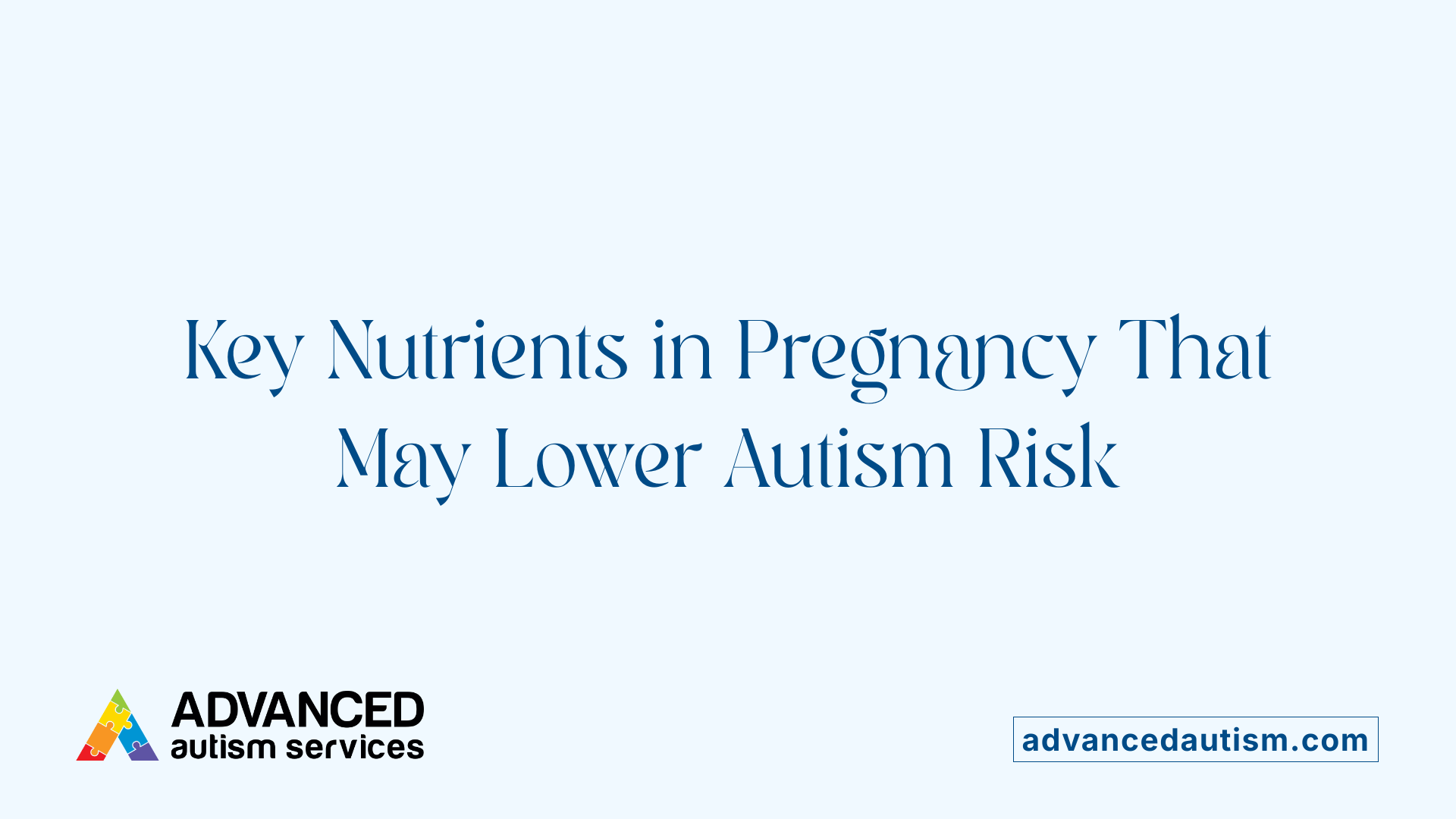
How do seed oils impact brain development and neurological health?
Seed oils, especially those rich in omega-6 fatty acids like soybean oil, play a complex role in brain development and neurological health. These oils influence biological processes through their effects on gene expression and inflammation. Some virgin seed oils such as extra virgin olive oil and virgin coconut oil are known for their bioactive compounds that provide neuroprotective effects. They contain antioxidants and anti-inflammatory components that support brain function and may help protect against neurodegenerative conditions.
In contrast, research from animal studies has suggested that soybean oil may impact neurological health differently. For example, it can alter gene expression in the hypothalamus, a brain region involved in regulating social behaviors and other functions. Such changes have been linked with behavioral alterations similar to those seen in autism, as well as other neurological and psychiatric conditions like Alzheimer’s, anxiety, and depression. However, these studies do not prove direct causation in humans.
Overall, the impact of seed oils on brain development depends heavily on the type of oil and its specific composition. While some oils may offer neuroprotective benefits, others might influence neurological pathways in ways that could affect mental health. More research is necessary to understand the exact mechanisms and implications for human neurological outcomes.
What role do nutrition and supplement intake during pregnancy play in autism risk?
Adequate nutrition during pregnancy is essential for healthy fetal development, including the development of the brain. Several studies highlight that higher or moderate intake of prenatal vitamins, folic acid, and vitamin D is associated with a lower risk of autism spectrum disorder (ASD) in children.
Prenatal multivitamins and specific nutrients like folic acid and vitamin D seem to have protective effects. These nutrients contribute to crucial developmental processes, such as DNA synthesis, cellular growth, and immune regulation. Consuming these nutrients during critical windows of pregnancy, particularly the periconceptional period (the time shortly before and after conception), appears particularly impactful.
Research suggests that the timing of nutrient intake influences its protective capacity. For example, taking folic acid before conception and early in pregnancy may reduce the chance of ASD development in offspring. Emerging evidence continues to support the importance of maternal diet quality, emphasizing that optimal nutrient levels can modulate ASD risk.
In summary, ensuring sufficient intake of key nutrients like folic acid and vitamin D during pregnancy might serve as a preventative strategy to decrease the likelihood of ASD. Health professionals recommend regular prenatal screenings and appropriate supplementation to support optimal maternal and fetal health.
| Nutritional Intervention | Common Sources | Impact on Autism Risk | Additional Notes |
|---|---|---|---|
| Prenatal vitamins and multivitamins | Healthcare-prescribed supplements | Reduced risk of ASD | Contains a blend of essential nutrients including folic acid and vitamin D |
| Folic acid | Leafy greens, fortified grains | Lower ASD incidence | Critical during preconception and early pregnancy |
| Vitamin D | Sun exposure, fortified foods | Possible protective factor | Adequate levels linked to lower ASD odds |
The importance of a well-balanced maternal diet enriched with specific nutrients highlights a preventative approach to neurodevelopmental health and ASD risk reduction.
Summary and Practical Recommendations
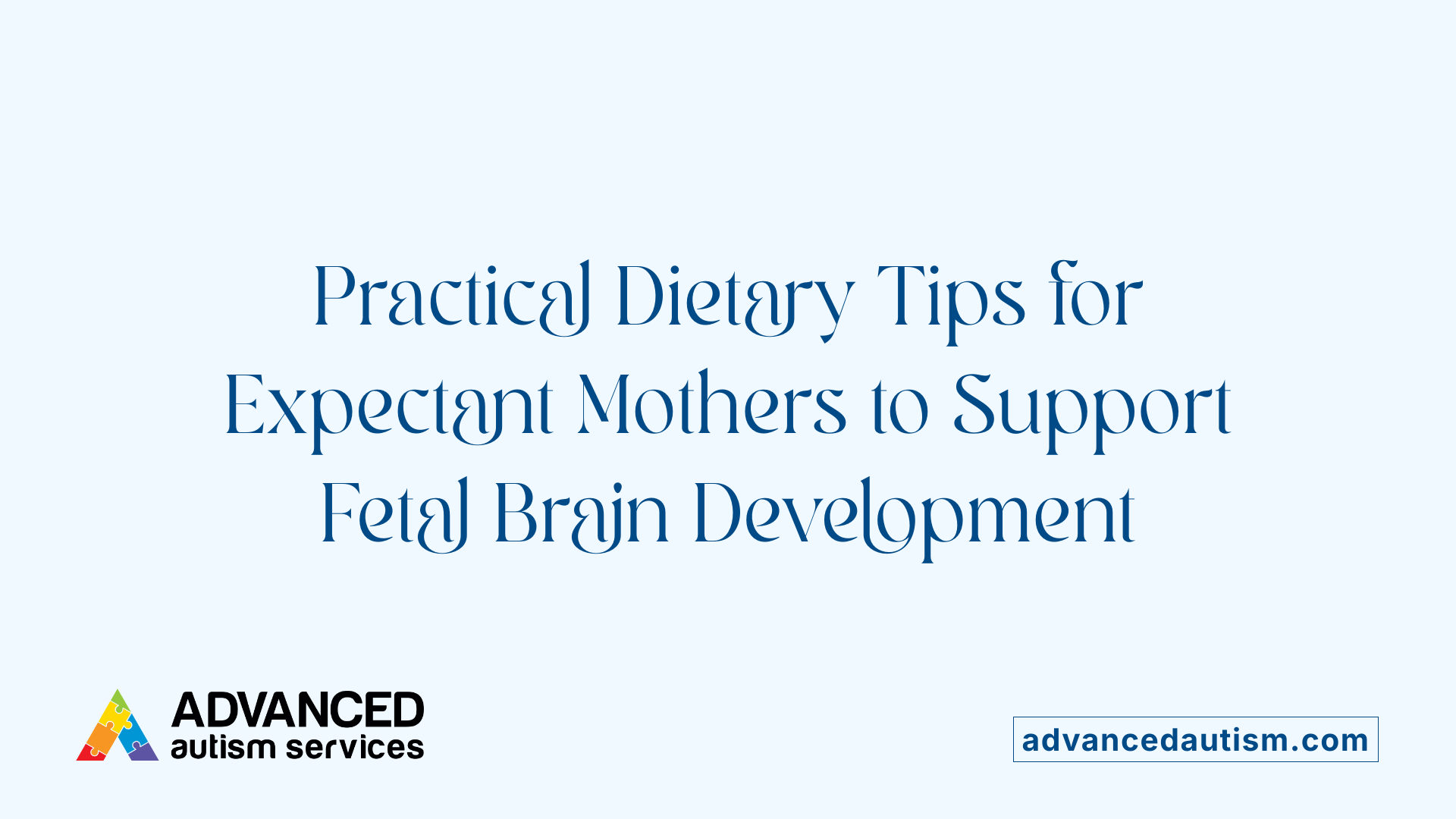
What does the current scientific understanding say about prenatal nutrition and autism risk?
Research indicates that maintaining adequate levels of certain nutrients during pregnancy can reduce the likelihood of autism spectrum disorder (ASD) in children. Multiple studies have explored the association between maternal supplement intake—specifically prenatal vitamins, folic acid, and vitamin D—and the health outcomes of offspring.
The evidence robustly supports that higher or moderate consumption of these nutrients correlates with a lower risk of ASD. For example, the use of prenatal multivitamins containing folic acid and vitamin D, especially during critical periods around conception, appears to be protective.
Furthermore, emerging research emphasizes the importance of maternal diet quality during pregnancy. The timing of nutrient intake plays a vital role; particularly, folic acid intake during the periconceptional period has been identified as crucial in influencing ASD risk.
| Nutrient | Recommended Timing | Potential Impact on ASD Risk |
|---|---|---|
| Folic acid | Before conception and early pregnancy | Lower risk of ASD in offspring |
| Vitamin D | Throughout pregnancy | Possible protective effect against neurodevelopmental issues |
| Multivitamins | During pregnancy, especially early stages | Associated with reduced autism odds |
What practical dietary advice can be given to expecting mothers?
Expectant mothers should aim to include sufficient amounts of folic acid and vitamin D in their diets. Prenatal vitamins are a convenient way to ensure adequate intake, but natural sources are also beneficial.
Foods rich in folic acid include leafy greens, citrus fruits, beans, and fortified grains. Vitamin D can be obtained from fatty fish, fortified dairy products, and safe sun exposure. In some cases, healthcare providers might suggest supplements if dietary intake is insufficient.
Ensuring a balanced diet that emphasizes these nutrients during pregnancy can support optimal fetal development and potentially reduce the risk of ASD.
Why is balanced nutrition important during pregnancy?
A well-rounded diet provides not only folic acid and vitamin D but also other essential nutrients necessary for the mother's health and the baby's development. Adequate nutrition supports proper brain development and may have long-term implications for neurodevelopmental health.
Focusing on balanced eating habits, moderate nutrient supplementation where appropriate, and regular prenatal check-ups constitute best practices for pregnancy health.
| Dietary Components | Sources | Additional Notes |
|---|---|---|
| Folic acid | Leafy greens, citrus, beans | Fortified foods also recommended |
| Vitamin D | Fatty fish, fortified milk | Sunlight exposure beneficial but should be balanced with skin protection |
| Omega-3 Fatty Acids | Fish, flaxseeds, walnuts | Important for brain health, complementary to folic acid concerns |
In summary, evidence underscores the significance of adequate prenatal nutrient intake, especially folic acid and vitamin D, as part of strategies to decrease ASD risk. Healthcare providers should advise pregnant women on holistic nutritional approaches, emphasizing the importance of balanced, nutrient-rich diets during this critical period.
Clarifying the Evidence and Moving Forward
While ongoing research continues to explore the multifaceted connections between diet and neurodevelopment, current scientific evidence does not support the idea that seed oils directly cause autism. Instead, ensuring adequate prenatal nutrition, reducing exposure to certain food additives, and maintaining a balanced intake of essential fatty acids are more substantiated strategies for supporting healthy brain development. Dispelling misconceptions and promoting scientifically grounded dietary choices are crucial steps towards understanding and potentially mitigating autism risk.
References
- Maternal Dietary Factors and The Risk of Autism Spectrum ...
- Effect of Refined Edible Oils on Neurodegenerative Disorders
- America's most widely consumed cooking oil causes ...
- Seed Oils: Facts & Myths
- America's most widely consumed oil causes genetic ...
- Autism and Processed Food
- Food Color and Autism: A Meta-Analysis
- Nutrition and Autism Spectrum Disorder: Between False ...
- Spike In Autism May Be Linked To Preservative ...
- Five things to know about seed oils and your health



